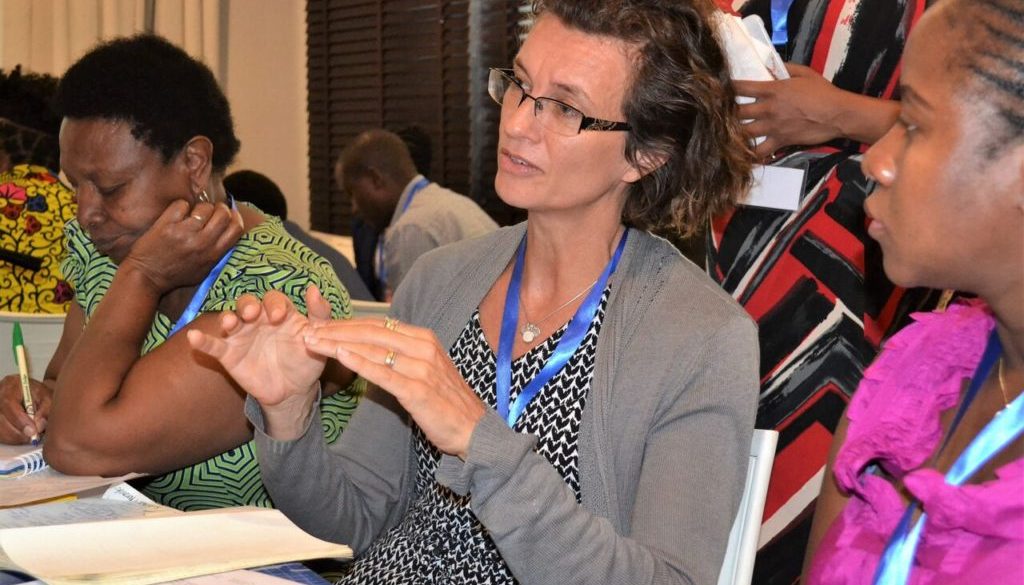Kenyan policy makers discuss opportunities and challenges for gender transformative health systems
By Sassy Molyneux
I was excited to attend an ALIGN funded policy meeting this week in Nairobi on behalf of KEMRI Wellcome Trust and RinGs. There were several ‘take homes’ for me:
1. Anybody who began the day thinking that health systems are gender neutral, technical institutions soon changed their minds
Experiences of policy makers, health workers, and facility users – shared through stimulating talks, innovative videos, and lively discussions – highlighted that health systems are complex socio-cultural and political systems influencing (and being shaped by) gender norms and their intersections with other social identities and stratifiers.
2. Gendered power relations affect everybody’s interaction with and experience of health systems: not just women and girls
Edwine Barasa amused many of us, but also made an important point, in mentioning that his tweets from the meeting had prompted some colleagues to phone and ask what a man was doing in a gender and health systems meeting. He highlighted that working towards a more gender equitable health system is everybody’s business.
3. While there was general support for moving towards a more gender transformative health system in Kenya, there was also a recognition that this is far from easy
Val Percival talked about the need for a clear vision, and a ‘bricks and mortar’ approach to building that vision. Bricks are actions related to building blocks (e.g. health financing, workforce, governance etc.), and mortar is intangible software of the system; the values and relationships critical in cementing the bricks. Val emphasized that developing a vision and action points for a gender transformative health system may draw on global partnerships, but must be locally developed and tailored.
4. Many meeting participants highlighted the need for everybody in the health system to be supported and enabled to ‘see’ and challenge harmful gender norms
Dr Joyce Mutinda’s inspirational talk echoed the comments of other Kenyan policy makers in emphasizing that in our vision and actions we should always keep in mind those we are ultimately serving: those most negatively affected by damaging gender norms and relations. She underscored that this is in line with the country’s constitution and commitment to moving towards Universal Health Coverage.
5. There was a call for more evidence – new studies and analyses, but also creative sharing of existing information – and more discussion, debate and action between policy makers, implementers and researchers
We all left the meeting with a commitment to do just that; inspired to build on our new networks, friends and ideas to make some concrete positive steps in our different roles and positions in the near- and longer-term future!
This convening was funded by Advancing Learning and Innovation on Gender Norms (ALIGN), an initiative led by the Overseas Development Institute (ODI). For further information, visit www.alignplatform.org and follow @ALIGN_Project. It was organised by Kui Muraya, Kate Hawkins and Rosemary Morgan.

